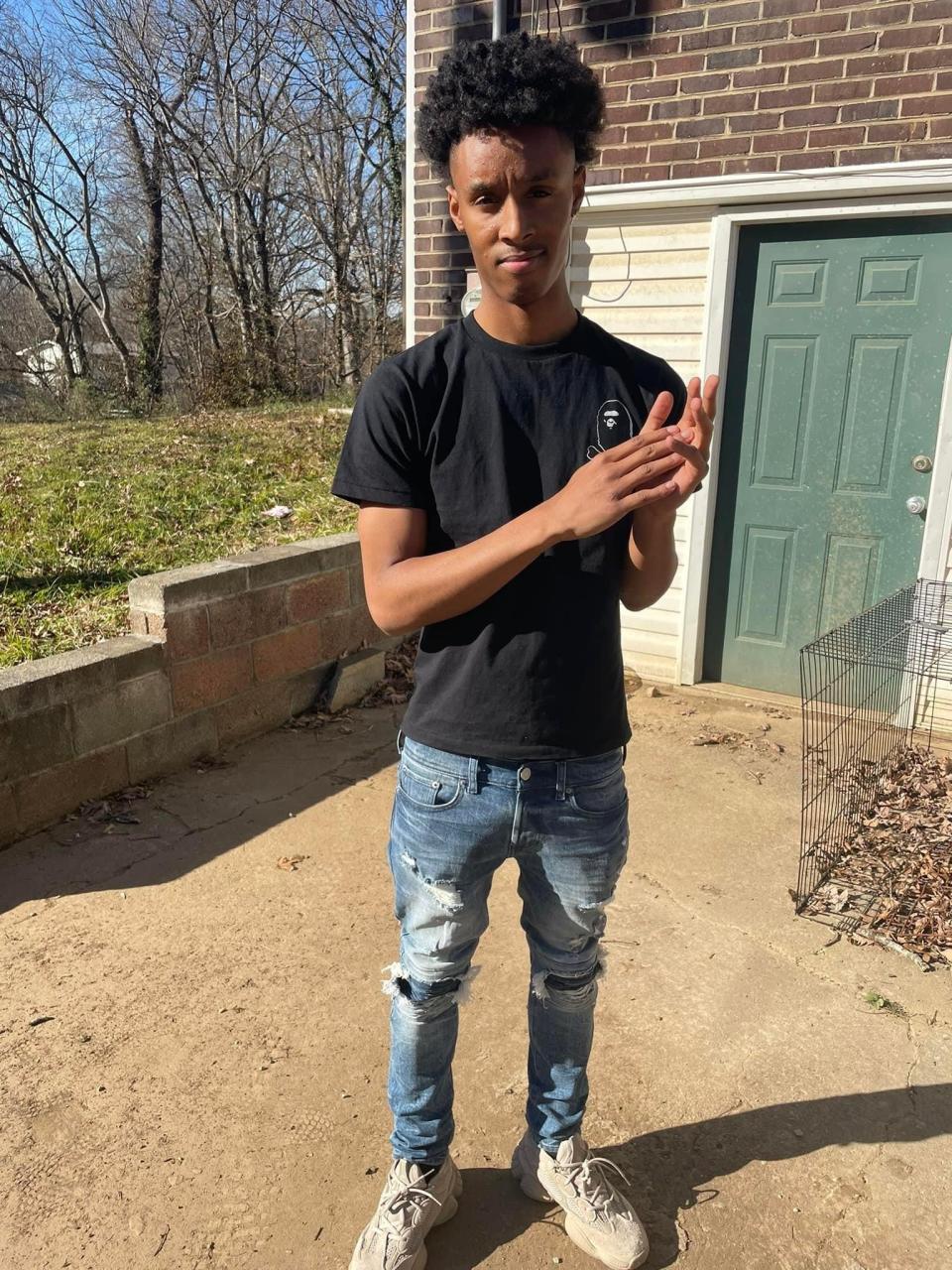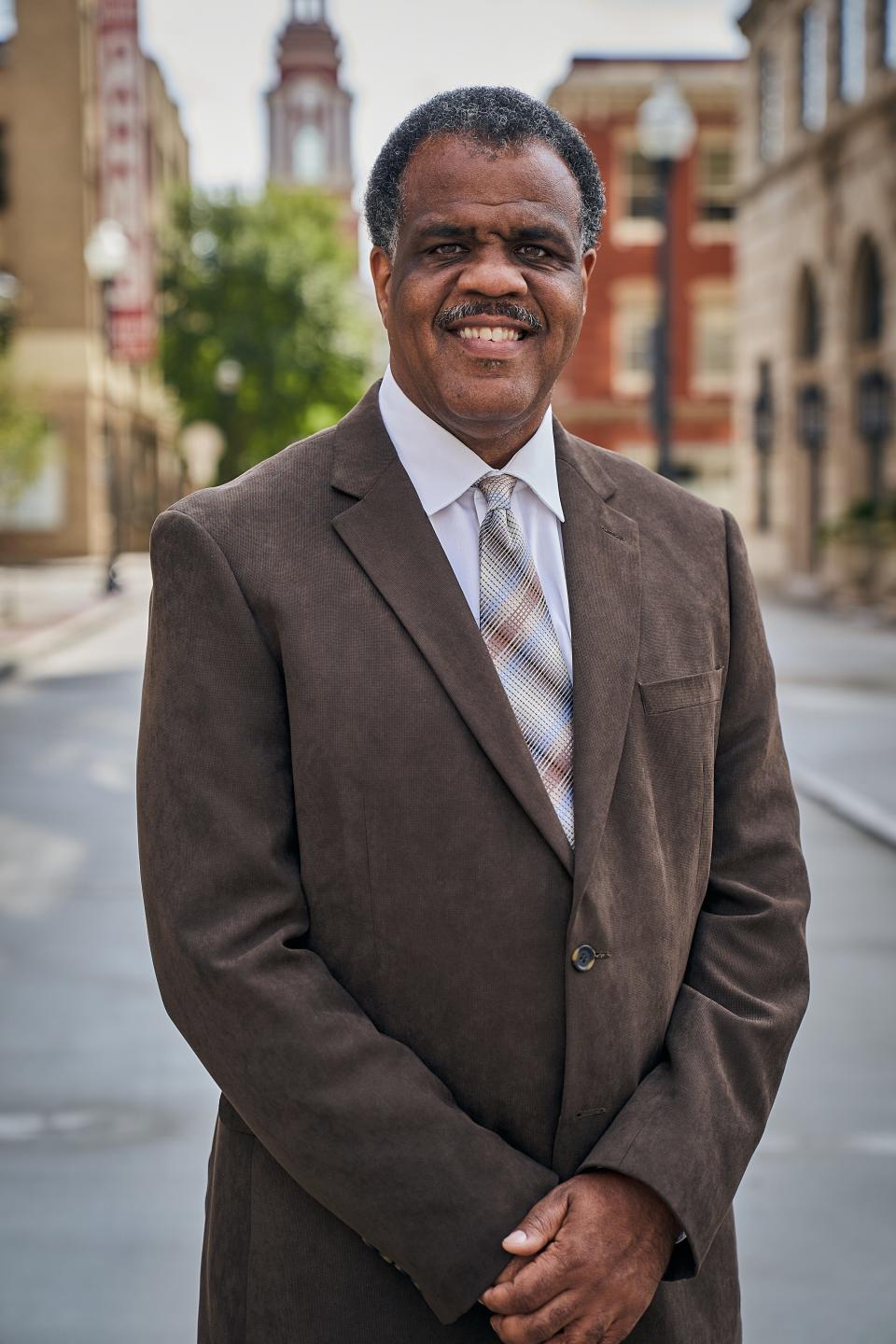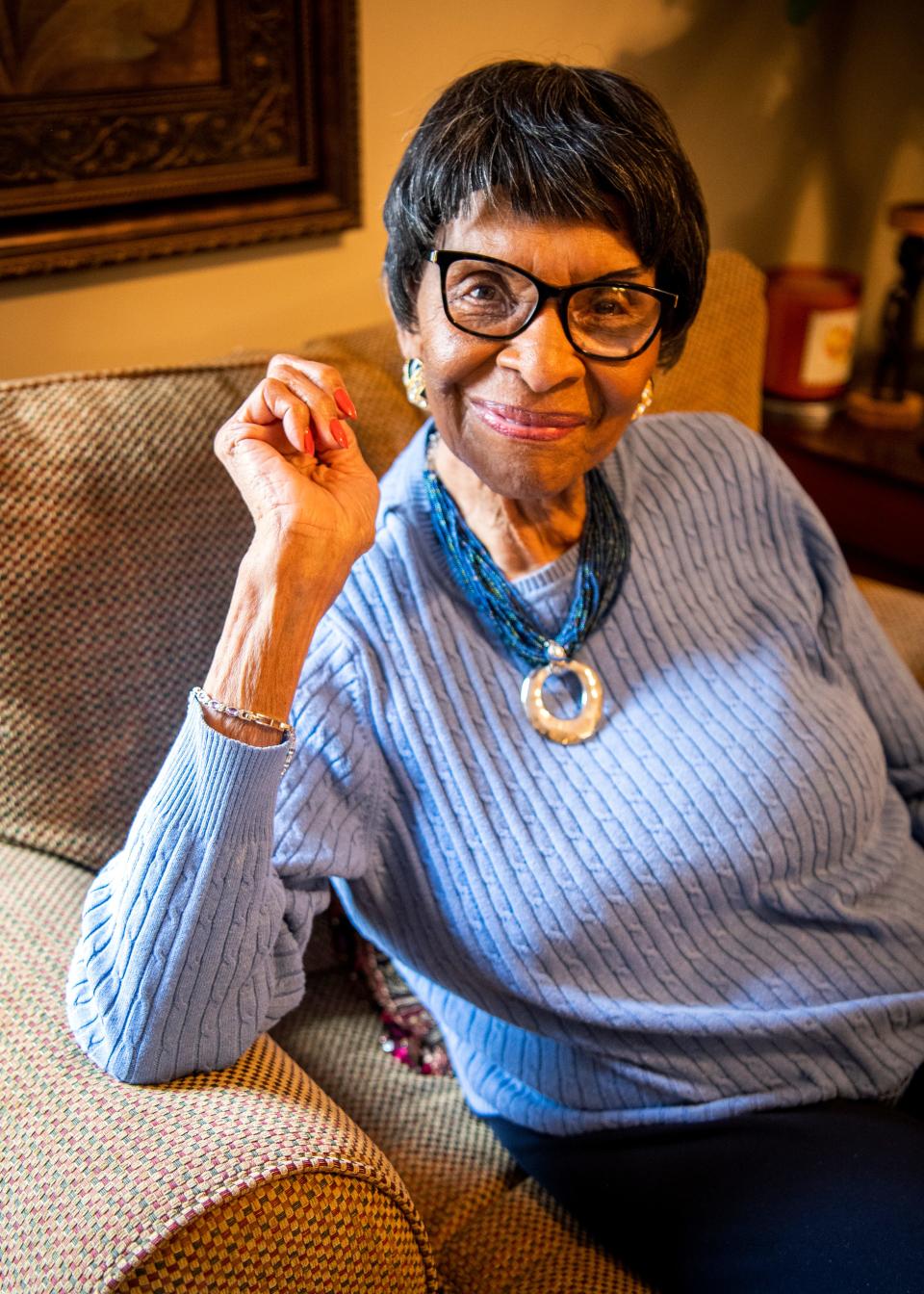Fixing poverty and social mobility may solve Knoxville's gun violence
In the past couple of years, I have written too often about an epidemic of gun violence in Knoxville that disproportionately harms the city's Black community.
I had hoped for a week without mourning the loss of another high school student, but sadly, Ricky Waters, a senior at Fulton High School set to graduate in May, was killed by gunfire in South Knoxville on Saturday. His grandmother told me his aspirations were to become a welder at Tennessee School of Technology.
Knoxville police said this week there are no suspects in custody.
His family has created a GoFundMe to help cover the costs for his funeral arrangements.

Poor social mobility, poverty linked to gun violence
How can gun violence be stopped?
With the implementation of youth programs and violence interruption, our local leaders are attempting to address the problem, but I wonder whether that will be enough if it doesn't get to the root of the issue.
I wrote a column a few years ago about poverty as a root cause of gun violence in Knoxville. Many candidates running for office in 2019 cited my piece and the staggering poverty rate. But the topic sort of just disappeared.
Last week, The Trace, a national publication that investigates gun violence in America, published "The Growing Racial Disparity Among Youth Gun Deaths."
Gun deaths are increasing among young people — and the racial disparity is widening. Gun injury mortality of people aged 0 to 19 went from 3.6 per 100,000 in 2001 to 4.2 per 100,000 in 2019, according to a new study of Centers for Disease Control data.
As the overall rates increased, the racial gap in victims of gun violence widened as well, accounting for an extra 0.55 deaths for Black young people over their white peers per year beginning in 2014.
By 2019, Black youth had a gun mortality rate 4.3 times higher than white youth and a gun homicide rate more than 14 times higher.
“There is no biologic plausibility for these disparities but rather they are a reflection of racist systems and policies that perpetuate inequities in violent injuries and death,” the article's authors wrote.
A report by JAMA Pediatrics found 62% of the more than 67,000 firearm-related deaths that occurred among youth between the ages of 5 and 24 from 2007 to 2016 occurred in counties where the percentage of residents who lived below the federal poverty level was 15% or greater. That includes Knoxville.
The rate of gun-related deaths was more than four times higher among young people living in counties with the highest concentrated poverty than with youth living in counties with the lowest concentration of poverty.
The study defined counties with the highest poverty level as those in which at least 20% of the population earned below the federal poverty threshold, and those with the lowest concentration of poverty as those in which 5% or fewer of residents lived below the federal poverty level.
Tameka Greer is the executive director of Memphis Artists for Change and member of the Black Southern Women’s Collaborative. She penned an excellent op-ed in Memphis's Commercial Appeal this week that highlights the need for research when it comes to solutions on gun violence.
More: Gun Violence is an epidemic that requires in-depth research and solutions | Opinion
As we try to solve the problem of gun violence in Knoxville, we need to focus on the disparities, racist systems, and inequities.
More: South Bend neighborhood organizer confronts violence by focusing on hopelessness, poverty
Knoxville's State Rep. Sam McKenzie pushing gun violence bill in Nashville

Legislators at the state level are working to pass legislation that will put even greater emphasis on the issue and hopefully have a greater impact.
State Rep. Sam McKenzie, who represents parts of Knoxville, has proposed House Bill 2599, and it was in front of the Health Subcommittee on Tuesday. The bill requires the Tennessee Department of Health to submit to the legislature a quarterly report on the public health impacts of gun violence in Tennessee, which must include research-based information to be used to make informed decisions on how best to protect Tennesseans from gun violence. You can read more about the bill here.
As part of his State of the Union address on March 1, President Biden unveiled his plan to reduce gun violence across the country. It's a two-prong approach: investing in crime prevention and assisting cities in employing more community police officers to walk the streets, get to know their neighbors and restore safety.
Considering the deterioration in trust between the Black community and the police in our city, I'm not sure how that will play out. From my reporting and discussions with Black community members, their trust and relationships with law enforcement are strained.
How did it get to this point? Aside from the historic and inherent mistrust between Black people and the police, over the past year our reporter Tyler Whetstone uncovered racism within KPD, and he continues to keep tabs on the city's search for its next police chief.
Former Knoxville mayor Victor Ashe wrote a column last week calling for a transparent search.
More: Kincannon should name police chief finalists; it's in her own best interest
Clara Hughes is 101 years old, and is Black history all by herself

My joy this week came from a very special interview I had with 101-year-old Clara Hughes.
She is the oldest person I have ever spoken with. She told me how she worked hard on her great-grandparents' farm in Harriman, getting baptized in an Oliver Springs creek, and working her way up from domestic work to becoming the first Black woman on the Y-12 union board.
Clara's ability to recall a century's worth of memories as she sat with me amazed me. It is life-changing to sit at the feet of our elders. My motivation to keep doing this work comes from these intimate moments with my sources.
More: She's history: 101-year-old Clara Hughes on breaking ground as a Black woman in Oak Ridge
Another interesting Black history tidbit for you comes from our very own Knox News columnist Robert Booker. He highlights the history of Knoxville's only Black-owned Dogan Gaither Motel and how it was turned into a rehabilitation center that helps formerly incarcerated people.
Don't forget to send me your ideas, requests, questions, and commentary.
Thank you for reading. Catch yall next week!
Angela Dennis is the social justice, race and equity reporter at Knoxville News Sentinel/ USA TODAY Network Tennessee. Email her at angela.dennis@knoxnews.com call her at (865) 407-9712 Twitter: @AngeladWrites Instagram: @angeladenniswrites Facebook: Angela Dennis Journalist
This article originally appeared on Knoxville News Sentinel: Fixing poverty and social mobility may solve Knoxville's gun violence

